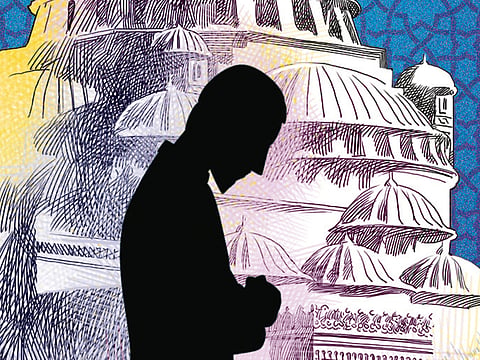Ramadan resonates with universal values
Adhering to the five pillars of Islam and having faith should be interwoven with outward morality

Today marks the beginning of Ramadan, when the word’s 1.6 billion Muslims will be fasting for 29 or 30 days, abstaining from food, drink, nourishment and physical relations from dawn to sunset.
Growing up, I had many fallacies about Ramadan. To me, it was simply about starvation and deprivation. Then, with all my myths demystified, I understood that this momentous month was an incredibly special and a deeply spiritual time for Muslims all over the world. I now look forward to Ramadan because there are myriad lessons that Muslims and non-Muslims alike can learn from it.
Prophet Mohammad (PBUH) said the most beloved person to God is the one with the best manners. Ramadan is a time when Muslims strive to exhibit increased morality and profound magnanimity and this brings together people of all faiths and cultures. Morality at an individual level is about embracing justice, compassion and tolerance towards all people. At a communal level, it is about being a responsible citizen and contributing to the overall good of society. While these precepts are inherent in Islam, they also resonate with core universal values.
The Quran states that the ultimate purpose of the fast is to ‘attain piety’. Sawm, the Arabic word for fasting, literally means ‘restraint and self-control’. Abstinence from fulfilling physical desires is a catalyst for self-discipline and it is through this that a Muslim practices noble manners and good speech. Ramadan is a time of spiritual reflection; Muslims are required to filter out bad habits that have become part of their character over time. Research shows that habits are usually formed in about 21 days. Aristotle said: “We are what we repeatedly do.”
In addition, Muslims dedicate themselves to the worship of God and seek His forgiveness. Fasting also inculcates the qualities of empathy and compassion towards those who are less fortunate than us and who may be suffering because of poverty, famine and inequality. For example, when a fasting person feels the pangs of hunger and thirst, they evoke a sense of fraternity, solidarity and social responsibility because it encourages Muslims to be charitable. At the same time, it reminds them of the shared responsibility to treat others the way they themselves wish to be treated.
During Ramadan, Muslims reflect upon and appreciate the blessings they have in life; basic necessities like food and water that are sometimes taken for granted. As writer Cynthia Ozick said: “We often take for granted the very things that most deserve our gratitude.”
The spirit of Ramadan is about being gracious. Despite this, there seems to be a demise in graciousness across the world and this is plaguing religious and non-religious societies alike. The important characteristics of tolerance and selflessness are scarce. This is perhaps a consequence of the rampaging materialism that may have taken over our lives, compelling us to succumb to our desires and plunging us into a state of spiritual deprivation. Muslims are not only required to curb their appetite, but also to refine their character by taming the soul and purifying it from diseases and traits such as arrogance, selfishness, dishonesty and intolerance.
Islam is inclusive in dealing with human beings. There is profound emphasis on the soul because it governs the actions of the body. A scholar once said: “The heart is the king of the limbs and the rest of the limbs are its soldiers. If the king is righteous, the soldiers will also be righteous. Similarly, if the king is corrupt, his soldiers will also be corrupt.” Ancient philosophers also believed that the mind, body, heart and spirit should work in harmony. In addition, Plato is credited with saying “... the part can never be well unless the whole is well”.
For some people, faith is a remote and abstract entity and does not necessarily have any bearing on the outer character. However, the Quran consistently describes true believers as those having faith and performing righteous actions. Hence, adhering to the five pillars of Islam and having faith should be interwoven with outward morality.
In our post-modern society, we sometimes lose the spirit of building positive relationships with people. We tend to be oblivious of the fact that everything we do has an impact on others — while we have freedom, we must not forget that this comes with responsibilities. Ramadan, makes Muslims conscientious about the way they treat others, it thus reminds them of the significance of sacrifice and putting others before self. But sadly, our inexorable contemporary lifestyles have made us very self-centred. With a lack of concern and compassion for others, this not only weakens the foundation of a society but is also against the precepts of the teachings of Islam. Prophet Mohammad (PBUH) said: “The best of people are those who bring most benefit to the rest of mankind.”
While many people around the world continue to suffer from senseless conflict and violence, this sacred time should remind Muslims of their common obligation to pursue justice and peace and uphold the dignity of every human being regardless of faith or culture.
If Ramadan is about having an impact on people’s inner qualities, then this should be an outward manifestation of integrity, kindness, generosity, honesty, morality. More importantly, it is about how we treat others.
Sajda Khan is a British writer researching for a PhD. You can
follow her on Twitter at www.twitter.com/ @SajdaKhanuk



